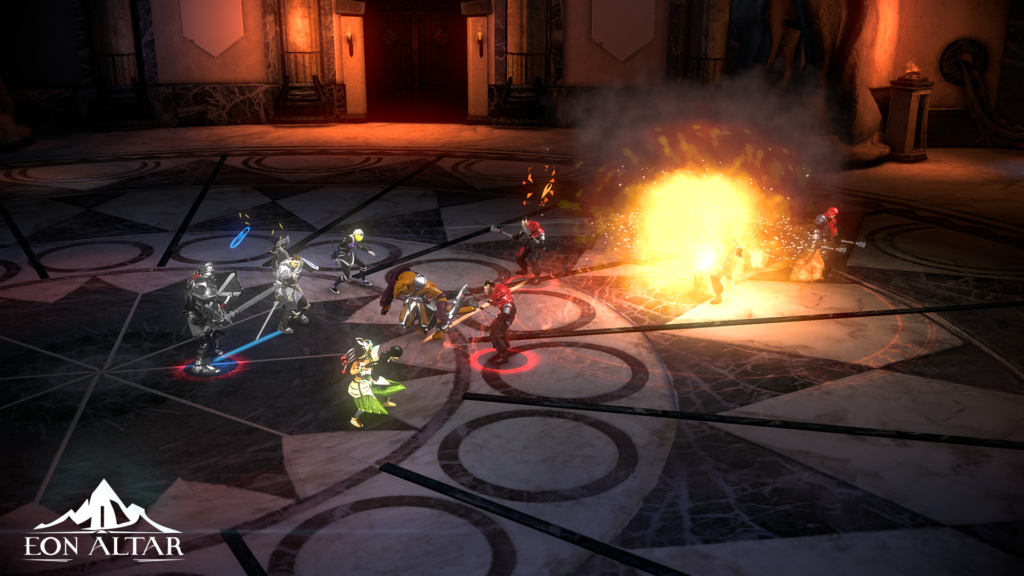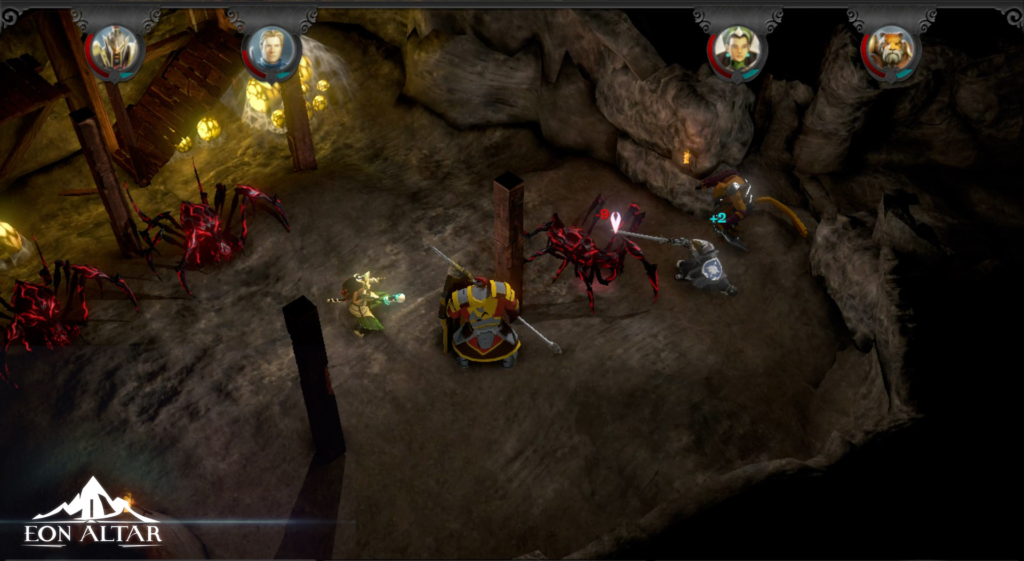Eon Altar
- Role: Gameplay Systems Designer
- Platform: PC with cell phone apps as controllers
- Studio: Flying Helmet Games
- Published: Steam – June 22nd, 2016
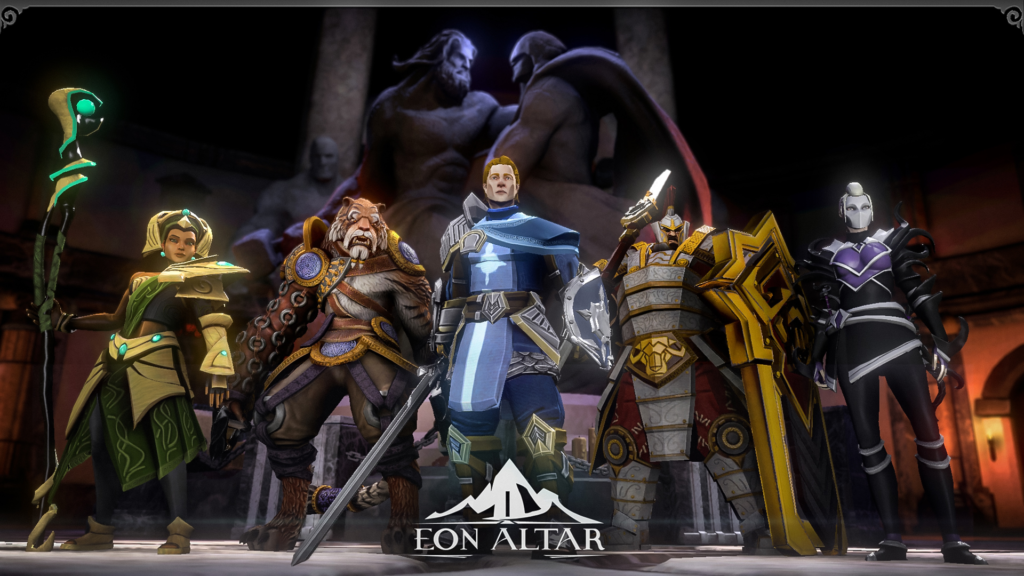
A Mobile-Enhanced Local Co-op RPG for 1-4 Players
Explore the lavish dungeons and tunnels that stretch below Tarnum Fortress and conquer dozens of unique quests and challenges. Prove your worth on a tactical battlefield, and overpower your foes with strategy, magic and martial prowess. The Eon Altar’s defenders are many and they are deadly.
Choose to cooperate with your allies or deceive them. Engage them in player to player dialogue to expose the truth in myths and legends, and guide your hero to their ultimate destiny or defeat.
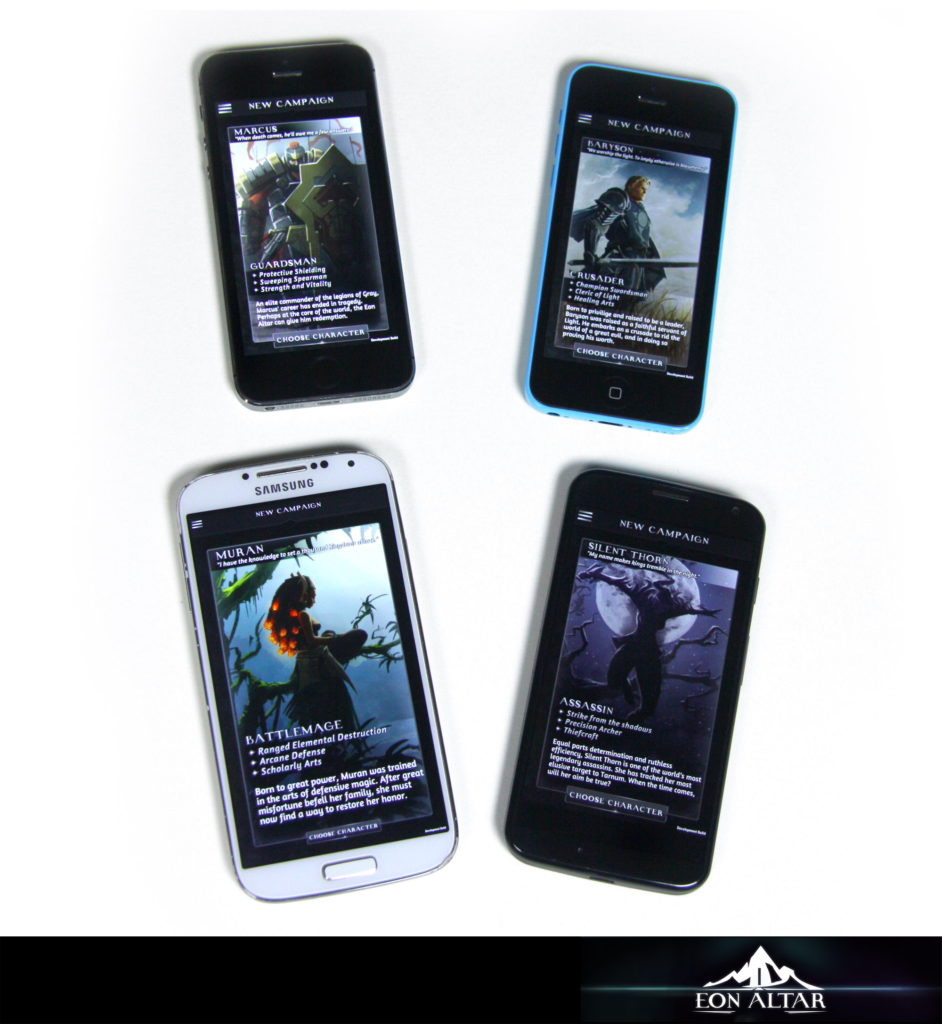
Design
The vision for Eon Altar gameplay was driven by creative director, Scott Penner. When I joined the project, they had a combat system that they were unsatisfied with. They wanted to replace their system with one that felt more like a fantasy tabletop RPG, but better utilised the phone as a controller. It would need to be a true couch co-op experience, which lets the player play together without waiting for one another.
To achieve this, I designed an ability system, which combined movement and action. What ever situation the character is in, they can move their reticule around and see the sort of contextual actions are available. Each ability is a combination of actions, such as range attacks, melee attacks, AoE attacks, support abilities, and movement. This allowed all the Players to choose their actions at the same time with a single choice during each turn in combat. The turn economy I designed looked like this: Player Choice, Player Result, NPC Choice, NPC Result.
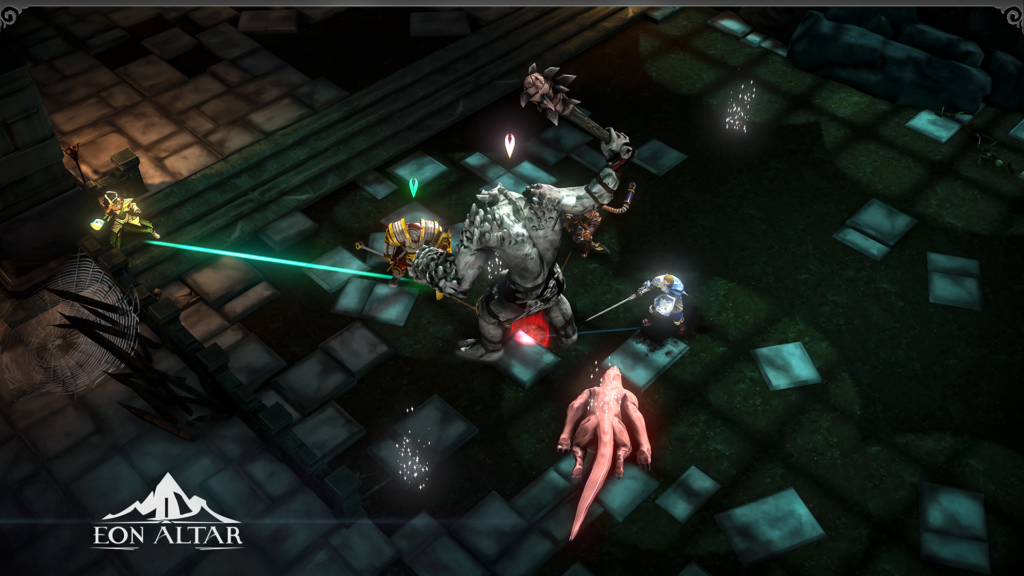
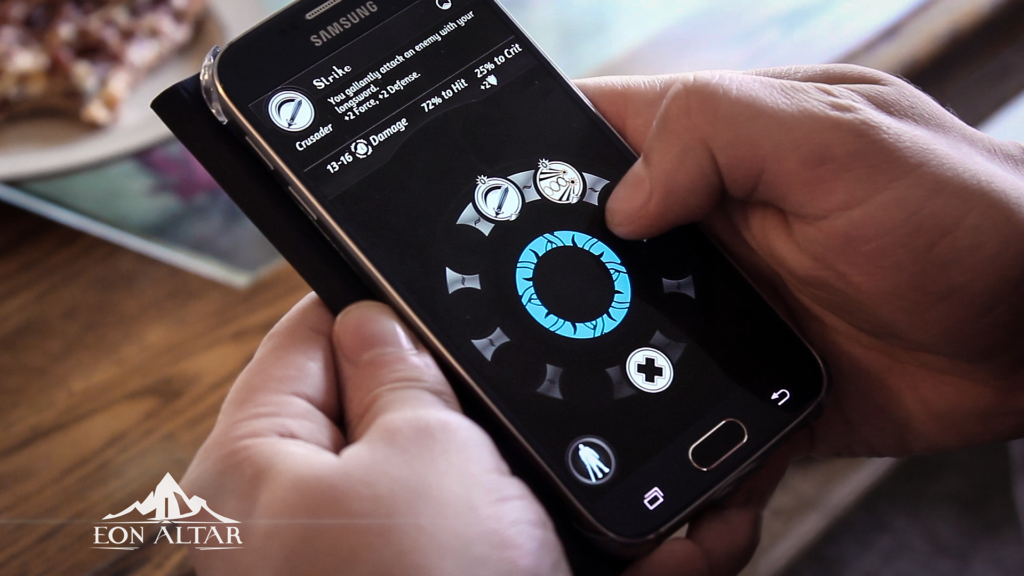
Scott wanted a system which would keep the players in the adventure and wouldn’t break up the narrative. He wanted to avoid having the character return to town to sell their loot and purchase gear.
To realise this requirement, I developed a multipart system: looting, crafting, upgrading, and unlocking. Rather then gathering treasure and enemy equipment that you’d sell to merchants; the heroes gather useful resources, build what they need, and learn new abilities.
- Similar to leveling up in other games, I designed a system that enable players to unlock new abilities that make them more flexible, effective, and powerful. Unlocking uses the Eon Altar’s principal resource: Renown. Much like XP does in a lot of games, it is rewarded for completing quests. While the heroes share most quests, they also complete personal quests to gain their own Renown.
- As the Heroes adventure below the Tarnum Fortress, they collect Godstone by discovering destiny stones. These milestones mark their progression through the dungeons. The first time each hero discovers a destiny stone they get Godstone. Godstone is individual and cannot be monopolised. Godstone is a gating resource, which are used to upgrade weapon and armour levels. Each Hero can upgrade their weapons and armour five times each, between its initial Battleworn and its final Masterwork state.
- The final three resources: Precious, Common, and Remnant resources are common loot gained from defeating foes or breaking loot containers. The Heroes compete for these resources, only the one that interacts with them is rewarded. Each is gathered from different foes or containers in different, but predictable amounts. For example, monsters and barrels have Remnant, while chests have precious resources. All three resources are used to craft items, which act as additional abilities in play. Not only did we design consumable buffs and healing items for the heroes to craft, each hero has access to non-consumable, hero specific items that act as special abilities.


